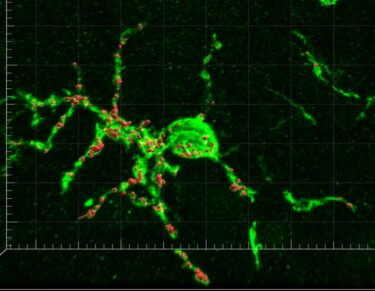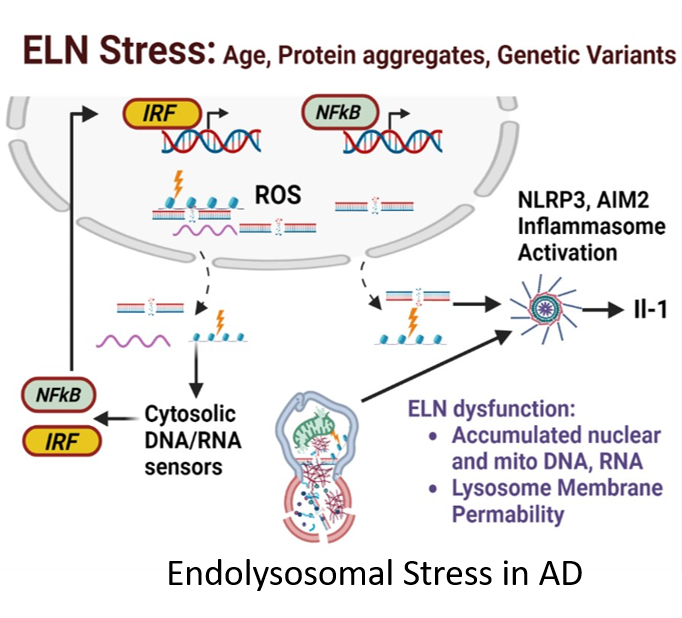Jayadev Laboratory

Functional assessments of microglial states across the spectrum of disease and aging.

Hidden within the diversity of microglial states lie pathways and genes that could be targeted for neurodegenerative disease drug development. We aim to resolve the regulatory networks driving microglial biology by learning from human brain tissue samples. Using multiomic analysis we characterize the microglial gene regulatory networks behind immune changes in sporadic Alzheimer Disease and in aging. Having identified candidate mechanisms to be hypothesis tested, we study the functional phenotypes of microglial states across normal aging and in early-stage disease using monoculture and multicellular in vitro induced pluripotent stem cell (iPSC) human cell models.
CNS Immune contributions to Autosomal Dominant Alzheimer Disease Progression

Glial responses to a changing microenvironment can also hasten progression of genetic neurodegenerative diseases and therefore may be a therapeutic target for more rare diseases. Our laboratory employs methods to investigate cell-autonomous and non-cell autonomous mechanisms of familial neurodegenerative diseases with in vitro with human neural cells. Using familial AD patient induced pluripotent stem cell (iPSC) lines or CRISPR/Cas9 gene edited iPSC cell lines we study the impact of disease genetic variants on microglia immune responses and neuronal health.
Peripheral immune changes in genetic neurodegenerative disease.
Early changes in the peripheral immune system even prior to clinical presentation may contribute to disease progression and may also serve as an accessible biomarker of early pathological changes that could be applied more broadly. Complementing the microglial studies we are investigating the transcriptomic alterations in peripheral innate immune cells isolated from patients carrying a familial AD (PSEN1, PSEN2, APP) gene variants. This includes both molecular and functional assays of cells collected from donor peripheral blood mononuclear cells.
Optimizing tools to determine polygenic risk for AD and elucidate pathogenic mechanisms

Dr. Jayadev is Associate Director the UW Alzheimer Disease Research Center (ADRC) and ADRC Therapeutic Pipeline Project (TPP) Genetics project. Her collaborative group has built pathway specific polygenic risk score (PRS) assessments to better determine the driving contributors to disease in individual patients. After stratifying samples obtained from the BRaIN laboratory based upon a pathway specific PRS, we molecularly profile cortical tissue with single cell omics approaches in parallel to iPSC based models from the same donor sample. The group is currently focused on endolysosomal pathway genetic risk and how genetic variants confer pathological change in brain and in vitro.
Contact us: sumie@uw.edu